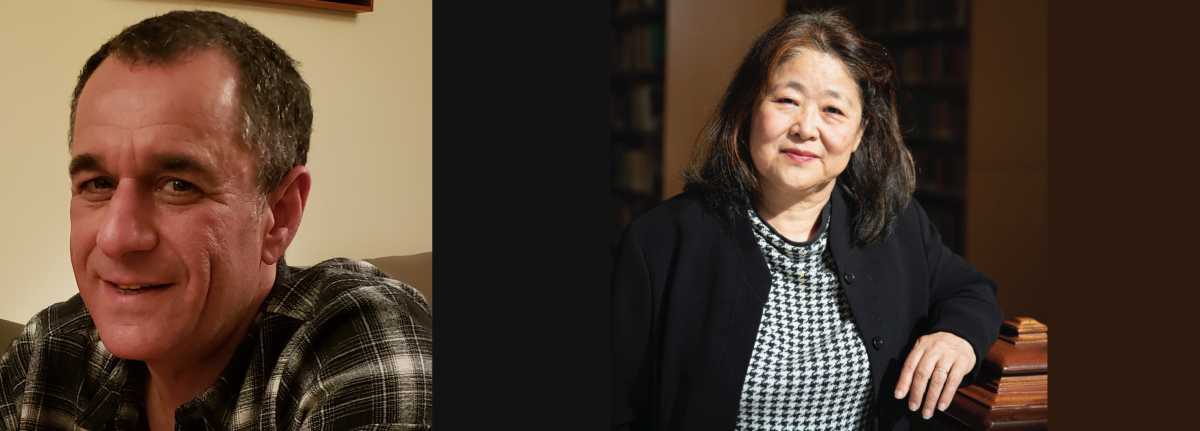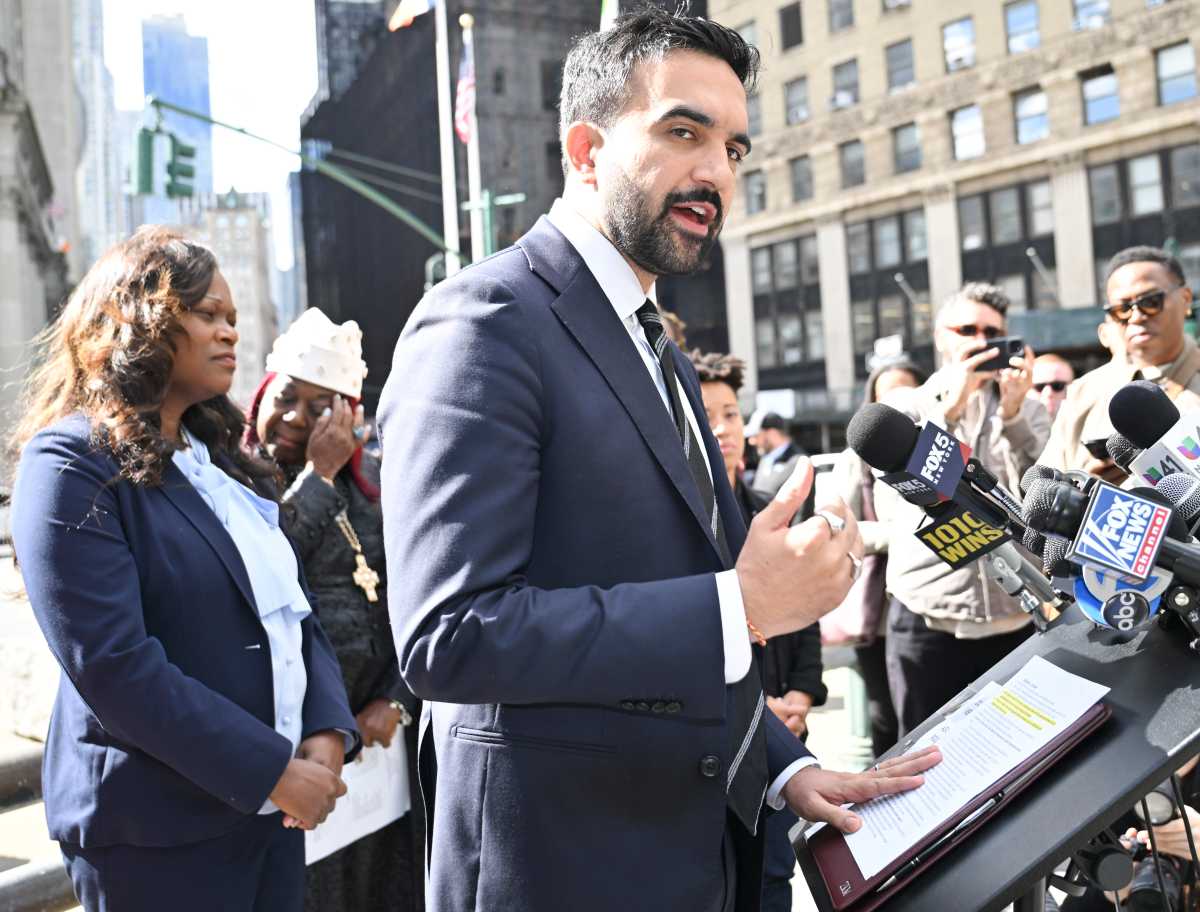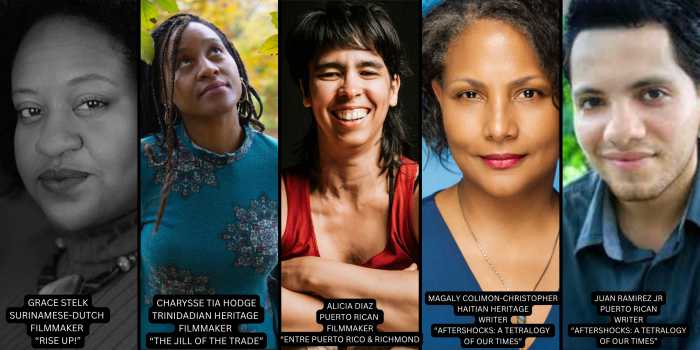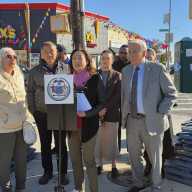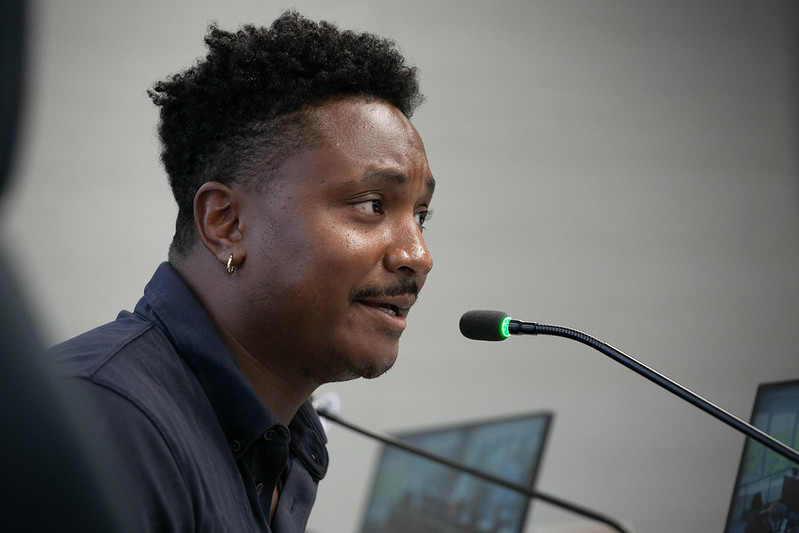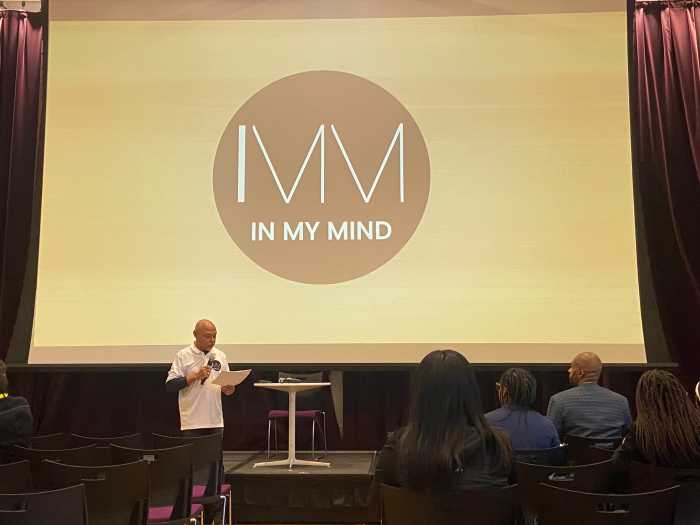The City University of New York (CUNY) has elevated Queens College professors Michael Mirkin and Yoko Nomura to the rank of distinguished professors last May.
This rank is the highest academic honor that CUNY can give to its faculty members. It is awarded to professors who have exceptional performance records by national and international standards in their respective fields. Mirkin and Nomura are two of just 14 total professors to currently hold this title at Queens College, located at 65-30 Kissena Blvd. in Flushing.
“Professors Mirkin and Nomura are representative of the caliber of our faculty, utilizing research results to address real-world problems,” Queens College President Frank H. Wu said. “Professor Mirkin’s work creates the possibility for optimizing the design of drug delivery systems and insights into cell communication and disease mechanisms, while Professor Nomura’s findings on the effects of climate-driven disasters on children in utero provides an opportunity for early intervention to address any resulting behavioral issues. It is deeply rewarding to see our faculty recognized for their transformative contributions to society.”
Mirkin has been conducting research related to nano-electrochemistry. He has been using nanometer-sized electrochemical probes in conjunction with scanning probe microscopy techniques in an effort to explore the systems and processes at the nanoscale. These highly versatile probes make it possible for him and his team to examine a wide range of phenomena. The flexibility and adaptability of the probes allow them to be used to study diverse samples, including nanoparticles and biological systems. As a result, they can help provide valuable insight into nanoscale behaviors.
One example of the work that Mirkin and his team have done is positioning the tip of a probe near a substrate surface to study charge transfer reactions, also known as the movement of electrons, at a nanostructured solid/liquid interface. Another experiment involves inserting the tip into a biological cell to probe intracellular processes with high spatial resolution.
Mirkin came to the United States as a refugee from the former USSR in 1989. Before moving to the United States, he earned his doctorate in electrochemistry from Kazakh State University. He would go on to conduct postdoctoral research at the University of Texas at Austin before taking part in the early development of scanning electrochemical microscopy (SECM). In 1993, he joined the University of Texas at Austin’s chemistry and biochemistry department.
Some of Mirkin’s other notable accomplishments include publishing around 200 journal articles and chapters, co-editing the first monograph on SECM and a monograph on electrochemistry. In addition to being a professor at Queens College, he has spent time as a visiting professor at Ecole Normale Supérieure in Paris, France.
Nomura is a professor in Queens College’s psychology department. Additionally, she is a faculty research fellow at the CUNY Advanced Science Research Center and a professional lecturer at Mount Sinai School of Medicine. Her research work at Queens College that earned her the distinguished professor rank involves investigating how prenatal and early childhood adversity may affect the development of the central nervous system.
Her research examines how neurobehavioral development may be impacted by genetic susceptibility and fetal programming, the concept that conditions experienced in utero can impact an individual throughout their life. Recently, she expanded her work to examine the effects that environmental disasters may have on long-term neurodevelopment and psychopathology.
In addition to this research work, Nomura also collaborates with the Queens College Psychological Center community mental health clinic to educate people there and try to help them reduce early life stress impacts.
Nomura received her doctorate from Columbia University before going on to train at the New York State Psychiatric Institute. During her time as a postdoctoral fellow at Columbia University’s College of Physicians and Surgeons, Nomura received her first National Institute of Mental Health (NIMH) grant and National Alliance for Research on Schizophrenia and Depression (NARSAD) Young Investigator Award.
Nomura received a prestigious career development award at Mount Sinai School of Medicine. She was also able to launch a longitudinal study of mother-child dyads, thanks in large part to support from then-President Barack Obama’s scientific stimulus grant. Even after joining Queens College and the CUNY Graduate Center in 2009, Nomura has continued to follow this community-based epigenetic cohort.

